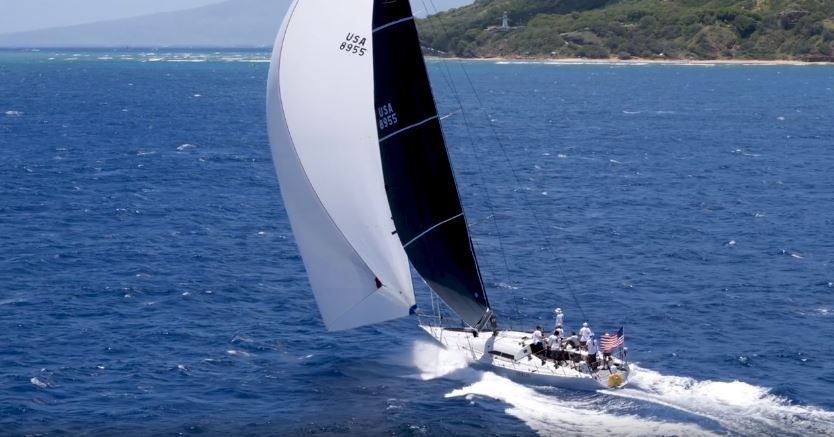I own a number of insured boats. Amy Currotto and I are representing boatowners on several boat insurance disputes. Marine insurance policies are often thought of as being under admiralty law, but is it? It is important for the policyholder to analyze which law is applicable in order to properly evaluate coverage.
Marine insurance policies along with vessel service contracts, are maritime contracts within the admiralty and maritime jurisdiction of the federal courts.1 From this statement, it may be reasonable to think that maritime law would then apply when interpreting these types of contracts and disputes. Nevertheless, this is not the case.
Prior to a Supreme Court landmark decision,2 maritime law was the controlling law with a very a limited exception for state law. That changed when the Court reversed it’s ruling by holding that state law should govern the interpretation of marine insurance contracts except in areas where federal maritime precedent to the contrary is firmly entrenched. In its decision, the Court paid deference to the States’ paramount interest in regulating insurance.
This holding allows the federal district courts to apply substantive state law to the issues before them. Of course, there have been a split of decisions among circuits. The Eleventh Circuit stated that:
When neither statutory nor judicially created maritime principals provide an answer to a specific legal question, courts may apply state law, provided that the application of state law does not frustrate national interests in having uniformity in admiralty law.3
In the same case, the appellate court also reversed a district court’s denial of attorney fees where the insured alleged breach of contract and demanded attorney fees pursuant to a Florida Statue. The court stated that since there was no controlling rule entrenched in maritime law regarding the award of attorney fees and since the controlling Florida statue was substantive for the purposes of Erie, an award of fees may be had pursuant to state law.
Prior to this decision, the 11th Circuit also upheld a Florida Statue which granted third-party beneficiaries a direct action against a maritime insurer.4 The court affirmed:
Federal admiralty law confers no general right to sue an insurance company directly, nor does it contain any specific bar against such action. A state may, however, create a direct action against a maritime insurer, at least where the state action is not in conflict with any feature of substantive admiralty law or any remedy peculiar to admiralty jurisdiction.
One must identify the state law involved and determine whether there is a principle which state law conflicts, and if there is no such admiralty principle, consideration must be given to whether such an admiralty rule should be fashioned. If none is to be fashioned, the state rule should follow. If there is an admiralty-state law conflict, the comparative interests must be considered. They may be such that admiralty shall prevail, or if the policy underlying the admiralty rule is not strong and the effect on admiralty is minimal, the state law may be given effect.
In summary, the court elaborated that since no admiralty principle existed that conflicted with Florida state law, the court had the option to create an admiralty rule to cover the matter in issue. The court declined to do so, and in doing so, allowed the Florida statue to govern noting the importance of state interest in the regulation of insurance.
Courts have agreed that the regulation of marine insurance contracts should be left to the states and decided on the basis of state law unless there exists a judicially established admiralty rule governing the question. It is important to note, that a small exception to this rule is carved out for warranties. Federal law will strictly enforce warranties when a breach of contract occurs regardless of whether the breach caused the loss.5 When it comes to boats and insurance coverage disputes, it is best to understand longstanding maritime insurance principles and state law.
Thought For The Day
If you live a life of make-believe, your life isn’t worth anything until you do something that does challenge your reality. And to me, sailing the open ocean is a real challenge, because it’s life or death.
—Morgan Freeman
__________________________________________
1 Irwin v. Eagle Star Ins. Co., 455 F.2d 827 (5th Cir. 1972); CPSA v. Ocean Repair Serv. Co., 1994 AMC 402, 1993 WL 427443 (S.D. NY 1993).
2 Wilburn Boat Co. v. Fireman Fund Ins. Co., 348 US 310 (1955).
3 All Underwriters v. Weisberg, 222 F.3d 1309, 1312 (11th Cir. 2000).
4 Steelmet, Inc. v. Caribe Towing Corp., 779 F.2d 1485, 1487 (11th Cir. 1986).
5 Lexington Insurance Co. v. Cooke’s Seafood, 835 F.2d 1364 (11th Cir. 1988).




